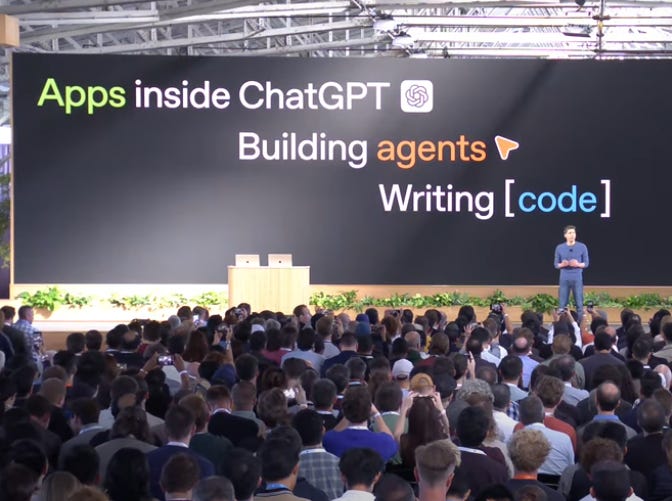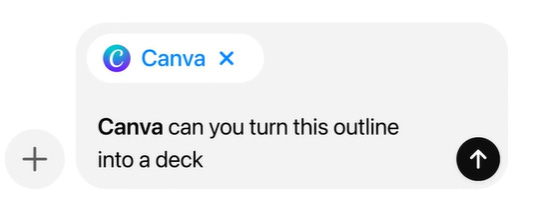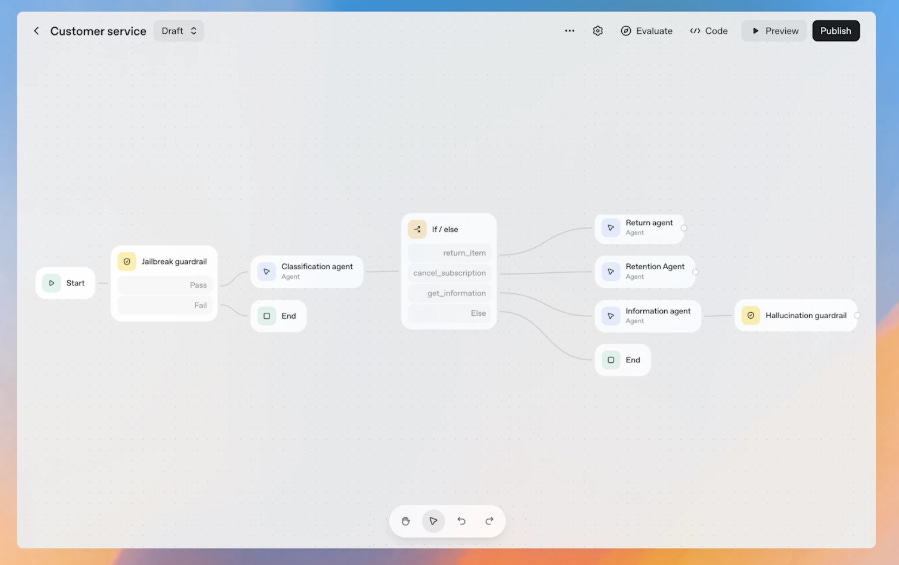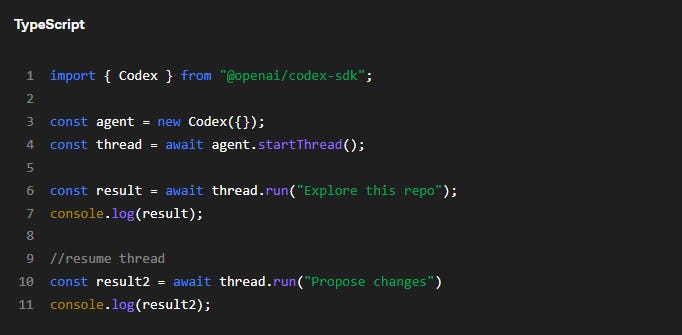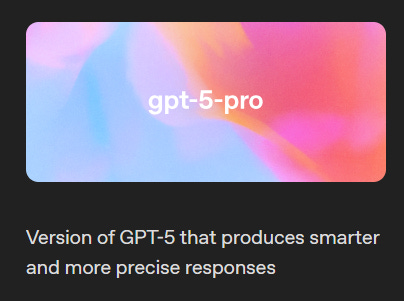Highlights from OpenAI Dev Day 2025
New agents, apps, and the future of ChatGPT as a full-fledged AI platform
The OpenAI Dev Day 2025, held on October 6, showcased a wave of major releases and introduced a series of innovations that solidify ChatGPT as a comprehensive platform for creating, running, and integrating intelligent agents and applications.
OpenAI Dev Day is OpenAI’s premier annual event, aimed at developers, researchers, and companies building AI-based solutions.
The event serves as a major launch stage, where OpenAI presents its key innovations of the year, including new models, tools, and strategic partnerships that shape the future of the generative AI ecosystem.
Event Highlights
Sora 2 for Video Generation
OpenAI introduced Sora 2, its next-generation model for creating realistic videos from text or images.
The new model has a deep understanding of 3D space, motion, and scene continuity, enabling the generation of dynamic clips with synchronized audio and sound effects.
The Sora API (still in preview) provides tools to create, track, and manage videos programmatically, allowing developers to automate the entire workflow—from prompt to the final MP4 download.
The model comes in two versions:
Sora 2, focused on speed and experimentation, ideal for rapid prototyping and social media content.
Sora 2 Pro, focused on cinematic quality, suitable for marketing productions and high-resolution videos.
The API also enforces safety rules, blocking the creation of adult content, the use of copyrighted characters, or real faces, ensuring ethical and responsible use of the technology.
ChatGPT Apps and the New App SDK
ChatGPT is entering a new phase: it is now possible to interact with applications directly within the conversation.
These apps can be activated by name or suggested automatically based on context. For example, when planning a trip, ChatGPT might suggest the Booking.com or Zillow app to show options on an interactive map—without leaving the chat.
The experience is seamless and integrated: the user converses, the app responds, and everything happens in the same space. This approach combines visual and interactive elements, such as playlists, slides, and maps, with the natural flow of human language dialogue.
For developers, OpenAI has launched the App SDK, a new toolkit that allows creating and integrating applications within ChatGPT!
Based on the Model Context Protocol (MCP), an open interoperability standard, the SDK provides tools to define app logic, design, and backend connections. Early partners include Canva, Coursera, Booking.com, Figma, Spotify, Expedia, and Zillow, with new apps able to be published in an official directory.
With this update, ChatGPT is no longer just a text assistant—it becomes an intelligent interaction environment where conversation is also action.
AgentKit – Creating and Optimizing Intelligent Agents
OpenAI introduced AgentKit, a set of tools that simplifies the creation, testing, and deployment of custom AI agents.
With AgentKit, developers can build multi-agent workflows visually, integrate corporate data, and quickly fine-tune agent behavior.
The kit includes three main components:
Agent Builder, to design and test agents using visual blocks.
Connector Registry, which manages connections with platforms like Google Drive, Teams, and Dropbox.
ChatKit, which allows embedding chat interfaces with agents into websites and applications.
AgentKit also provides evaluation and optimization tools, such as trace grading and automatic prompt tuning, helping create more efficient and reliable agents.
Enhanced Features of Codex
Codex is now globally available, offering features that streamline the work of developers and engineering teams: Slack integration, a Codex SDK to embed the agent into workflows, and new administrative tools with monitoring and metrics.
It allows for automated code review, editing, and generation, reducing review time and improving development quality.
With Codex, developers can work in any environment in an integrated, secure, and efficient way, leveraging the full potential of GPT-5-Codex.
GPT-5 Pro and Real-Time Voice Models
OpenAI also unveiled the GPT-5 Pro model on the API, designed for greater accuracy and depth in specific domains, particularly in sectors like finance and healthcare.
In addition, two new models were announced: gpt-realtime-mini, which provides real-time audio streaming at a significantly lower cost, and gpt-image-1-mini, a cost-effective image generation model that accepts text and image inputs and produces image outputs.
Conclusion
Follow our page on LinkedIn for more content like this! 😉
OpenAI Dev Day 2025 demonstrates that ChatGPT and the OpenAI ecosystem are evolving into a full-fledged AI platform, capable of going beyond text generation.
With tools like Sora 2, AgentKit, Codex, and integrated apps, developers and companies can create multimodal experiences, automate complex tasks, and accelerate innovation with greater safety and control.
These releases not only simplify the development of intelligent solutions but also expand creative and productive possibilities, combining conversation, video, code, and automation in a single environment. As these tools become more widely adopted, the impact on how we interact with technology will deepen, opening doors to new products, workflows, and digital experiences.
With these innovations, OpenAI reinforces its path toward a unified platform that connects models, apps, and intelligent agents, giving developers more autonomy, speed, and scalability to build AI-powered solutions.


